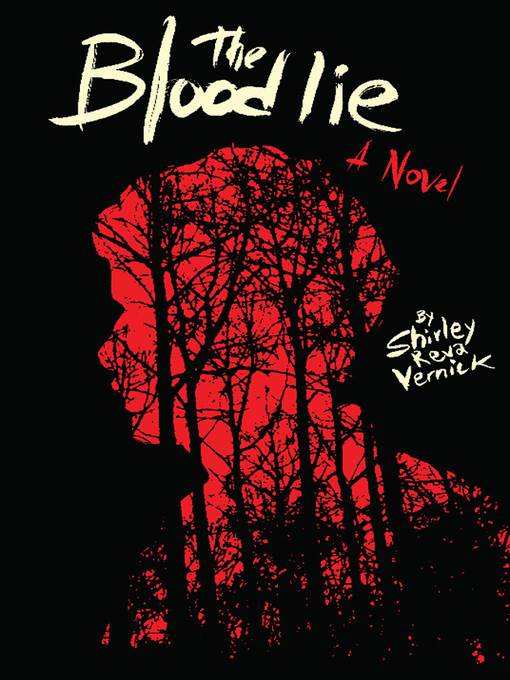
The Blood Lie
A Novel
فرمت کتاب
ebook
تاریخ انتشار
2011
Lexile Score
740
Reading Level
3-4
ATOS
4.7
Interest Level
6-12(MG+)
نویسنده
Shirley Reva Vernickناشر
Cinco Puntos Pressشابک
9781935955139
کتاب های مرتبط
- اطلاعات
- نقد و بررسی
- دیدگاه کاربران
نقد و بررسی

November 14, 2011
Inspired by true events that affected debut novelist Vernick's relatives, this historical drama tackles the weighty issue of anti-Semitism with uncompromising clarity. It's 1928, on the eve of Yom Kippur, and 16-year-old Jack Pool is unexpectedly thrust into the spotlight when a young girl vanishes. Unscrupulous smugglers in need of a distraction blame Jack and the rest of the Jewish community in their small upstate New York town, prompting illegal searches and persecution. As the hateful lies and rumors spread, the innocent Jack and his family struggle to stay safe, even as their neighbors turn against them. Marked by ugly words and uglier actions, this isn't an easy story; despite the novel being grounded in a particular time and place, the authentic depictions of a community driven to false accusations based on paranoid assumptions and prejudice has contemporary relevance. Yet Vernick maintains a thread of cautious optimism, by way of characters who acknowledge the insidious reality of anti-Semitism, while refusing to have their personal relationships tainted by it. Ages 10âup.

August 1, 2011
When little Daisy Durham disappears, an innocent Jewish boy is called a murderer.
In upstate New York in 1928, 16-year-old Jack Pool knows there's no hope for a romance with beautiful Emaline Durham, Daisy's older sister. They inhabit different worlds, and the gold crucifix she wears stands between them "like an electrified fence, all glittery and metallic." Jack is Jewish, and Daisy's disappearance sparks an ugly episode of prejudice and intolerance in the little town of Massena. Flames of prejudice are fanned by local bigot Gus Poulos, who spreads age-old tales of the blood lie and how Daisy was probably sacrificed, her blood used in mysterious Jewish rituals. But Gus has personal reasons for inflaming passions and involving the police, and things get out of hand when Jewish-owned businesses are searched, the temple is raided and someone kills all of the Pool family chickens. Based on an actual incident in Massena in 1928, the slim novel effectively mines layers of ignorance, fear, intolerance and manipulation, and it connects the incident to Henry Ford's anti-Semitic writing and to the lynching of Jewish businessman Leo Frank in 1915.
A great match with Karen Hesse's Witness (2001), also set in the 1920s, about a Vermont town that took a stand against prejudice. (author's note) (Historical fiction. 10 & up)(COPYRIGHT (2011) KIRKUS REVIEWS/NIELSEN BUSINESS MEDIA, INC. ALL RIGHTS RESERVED.)

November 1, 2011
Gr 7 Up-The year is 1928. Jack Poole, 16, wants nothing more than to leave his small, insular upstate New York town to study music in Syracuse. This ambition is a welcome distraction from his yearning for Emaline, a girl he cannot date because he is Jewish and she is Christian. The depth of the town's anti-Semitism is revealed when Emaline's sister goes missing, and Jack is accused of her murder. Investigators assume that Yom Kippur involves human sacrifice and the use of children's blood for religious ceremonies. The plot twist may seem improbable, so young people will be fascinated to read in the afterword that the novel is closely based on an incident that occurred in the author's hometown of Massena, NY. The dialogue and details about the characters' social world seem historically accurate and carefully researched, and readers will have a sense of being transported to 1928 while identifying with the characters' universal desires and feelings. The action in this concise novel is extremely compressed. This makes for a fast, if at times unsatisfying, read because teens might long for a deeper, more-nuanced knowledge of the characters. Still, the historical accuracy is impressive, and Vernick gives teens a terrifying view of America's recent history that is absolutely crucial. This book would be a fine addition to a social-studies curriculum.-Jess deCourcy Hinds, Bard H.S. Early College, Queens, NY
Copyright 2011 School Library Journal, LLC Used with permission.

theflashgirl11 - I love this kind of book!I cant wait to start reading!

November 15, 2011
Grades 7-10 The year is 1928. The place is the small town of Massena, New York, near the Canadian border. Jack Pool is turning 16, but there's little reason to celebrate when a little girl goes missing and Jack is accused of being her abductor. Why? Simply because he is Jewish and local rabble-rousers subscribe to the invidious myth of the blood lie: that Jews kidnap and kill children to use their blood in baking Holy Day bread (the story takes place over Yom Kippur). Though it seems inconceivable that anyone could believe such a thing in the twentieth century, this is based on a true story of a similar blood libel that actually did occur in Massena. Vernick's novel is a scathing indictment of anti-Semitism, and though occasionally didactic and histrionic, it is nevertheless an important book that reminds us of the imperative need to remember lest we find ourselves repeating the horrors of the past.(Reprinted with permission of Booklist, copyright 2011, American Library Association.)

























دیدگاه کاربران